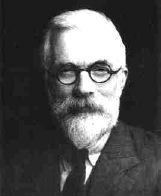

Ronald Fisher received a B.A. in astronomy from Cambridge in 1912. There he studied the theory of errors under Stratton using Airy's manual Theory
of Errors. It was Fisher's interest in the theory of errors in astronomical observations that eventually led him to investigate statistical problems.
Fisher gave up being a mathematics teacher in 1919 to work at the Rothamsted Agricultural Experiment Station where he worked as a biologist and made many
contributions to both statistics and genetics. He had a long dispute with Pearson and he turned down a post under him, choosing to go to Rothamsted instead.
There he studied the design of experiments by introducing the concept of randomisation and the analysis of variance, procedures now used throughout the world.
Fisher is considered the founder of modern statistics because of his many important contributions to that field. In 1921, he introduced the concept of likelihood and the maximum likelihood estimator. He also developed methods suitable for small samples, like those of Gosset, discovered of the precise distributions of many sample statistics, invented of analysis of variance, and studied hypothesis testing.
In 1922 he gave a new definition of statistics. Its purpose was the reduction of data and he identified 3 fundamental problems: specification of the kind of population that the data came from, parameter estimation, and distributional problems.
He was elected a Fellow of the Royal Society in 1929, and was awarded the Royal Medal of the Society in 1938. He was awarded the Darwin Medal of the Society in 1948, and in 1955, he was awarded the Copley Medal of the Royal Society.